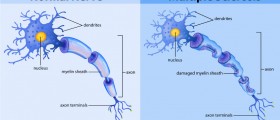
About ten per cent of women will suffer from depression during pregnancy. In the past, it was believed that there were “pregnancy hormones” that would prevent depression during pregnancy, but make depression more likely after giving birth. Nowadays, the theory is that a rapid rise in hormone levels in the early stages of pregnancy can cause problems with brain chemistry and thus depression. Any change in hormone levels can lead to anxiety. Both anxiety and depression often go unrecognized as a result of a tendency for pregnant women to dismiss these feelings as a requisite occurrence during pregnancy. Depression can affect ones physical health and can increase the risk of preterm labor, so treatment of the condition should be approached correctly.
Risk Factors
If you have a personal or family history of depression, you will be more vulnerable to depression during pregnancy. Even those with a history of very minor depression can be susceptible to depression during this period of time. Relationship difficulties that one might be experiencing can also lead to depression during pregnancy. If so, seek counseling. Don’t assume that everything will somehow be resolved after giving birth.
Fertility Treatments
Some fertility treatments can contribute to the onset of depression, especially if one has had a long struggle to become pregnant. After all the procedures related to the treatments, there may be some emotional side effects. Fear of losing the baby might also be the cause of anxiety in those who have undergone a struggle to become pregnant.
Previous Miscarriage(s)
A history of miscarriage or losing a baby can, of course, enhance these negative feelings. Fear can play a big part with regard to the development of depression or anxiety, and this is one fear that might be particularly destructive for women in this situation.
Complicated Pregnancy
If one is undergoing a high-risk, complicated pregnancy, this will of course cause a certain amount of anxiety. Significant emotional turmoil can be experienced as a result of this type of pregnancy, especially if one is constantly being exposed to tests or examinations. If one is out of work as a result of pregnancy, this can also contribute to the onset of stress.
Stressful life
A stressful life in general is another possible cause of depression during pregnancy. If you have recently moved house or if you are experiencing financial difficulties, then these things might be having a negative effect on your pregnancy. Those who have suffered any kind of abuse in the past will also be quite vulnerable to depression during pregnancy. Unplanned pregnancies might also lead to depression in some cases.

















Your thoughts on this
Loading...